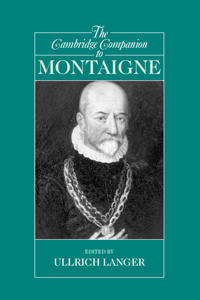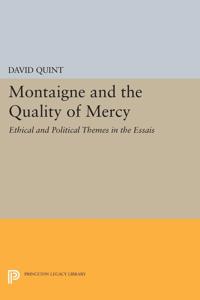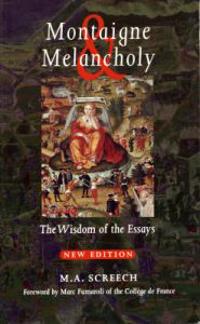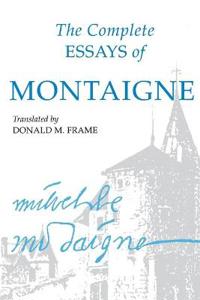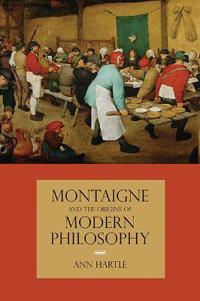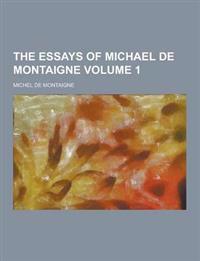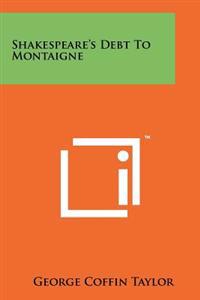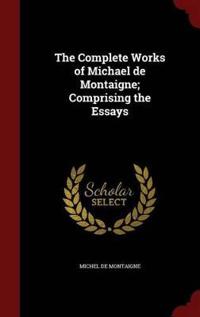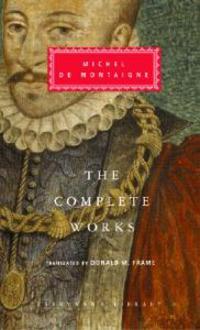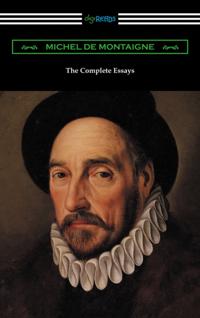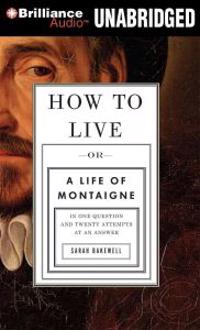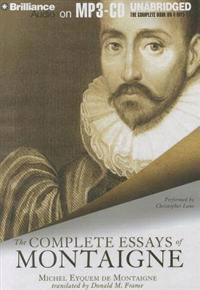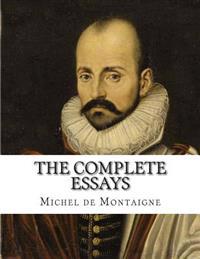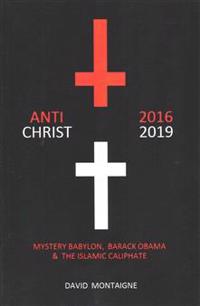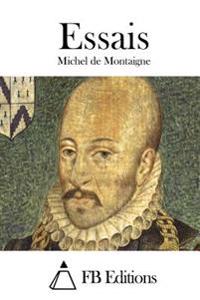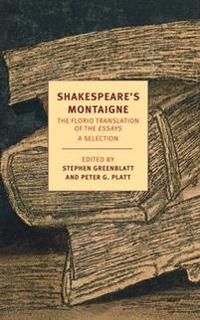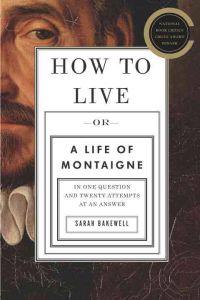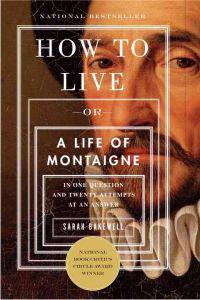Cambridge Companion To Montaigne (Pocket)
avUllrich Langer
ISBN: 9780521525565 - UTGIVEN: 200506Michel de Montaigne (1533-1592), the great Renaissance skeptic and pioneer of the essay form, is known for his innovative method of philosophical inquiry which mixes the anecdotal and the personal with serious critiques of human knowledge, politics and the law. He is the first European writer to be [...]
Montaigne
ISBN: 9780691167879 - UTGIVEN: 2017-01One of the most important writers and thinkers of the Renaissance, Michel de Montaigne (1533-92) helped invent a literary genre that seemed more modern than anything that had come before. But did he do it, as he suggests in his Essays, by retreating to his chateau, turning his back on the world, and[...]
Montaigne and the Quality of Mercy (häftad)
ISBN: 9780691603025 - UTGIVEN: 2014-07In a fresh reading of Montaigne's Essais, David Quint portrays the great Renaissance writer as both a literary man and a deeply engaged political thinker concerned with the ethical basis of society and civil discourse. From the first essay, Montaigne places the reader in a world of violent political[...]
Montaigne & Melancholy (Pocket)
avM. A. Screech, Marc Fumaroli, Marc Fumarolicollege De France (FRW)
ISBN: 9780742508637 - UTGIVEN: 2000-06Montaigne (1533-1592), the personification of philosophical calm, had to struggle to become the wise Renaissance humanist we know. His balanced temperament, sanguine and melancholic, promised genius but threatened madness. When he started his Essays, Montaigne was upset by an attack of melancholy hu[...]
Complete Essays of Montaigne
ISBN: 9780804704861 - UTGIVEN: 1958-06This new translation of Montaigne's immortal "Essays" received great acclaim when it was first published in "The Complete Works of Montaigne" in the 1957 edition. "The New York Times" said, "It is a matter for rejoicing that we now have available a new translation that offers definite advantages ove[...]
Montaigne and the Origins of Modern Philosophy (Häftad)
avAnn Hartle
ISBN: 9780810129320 - UTGIVEN: 2013-11Montaigne's "Essays" are rightfully studied as giving birth to the literary form of that name. Ann Hartle's "Montaigne and the Origins of Modern Philosophy" argues that the essay is actually the perfect expression of Montaigne as what he called "a new figure: an unpremeditated and accidental philoso[...]
Entretien Avec M. de Saci Sur Epictete Et Montaigne (Pocket)
avBlaise Pascal
ISBN: 9781107665453 - UTGIVEN: 2013-02-07This volume contains the full text of Pascal's Entretien avec M. de Saci sur Epictete et Montaigne in the original French.[...]
The Essays of Michael de Montaigne Volume 1 (Häftad)
ISBN: 9781230242149 - UTGIVEN: 2013-09This historic book may have numerous typos and missing text. Purchasers can usually download a free scanned copy of the original book (without typos) from the publisher. Not indexed. Not illustrated. 1811 edition. Excerpt: ... were Without drawing his sword, saw himself possessed of the kingdom of N[...]
Shakespeare's Debt to Montaigne (Häftad)
avGeorge Coffin Taylor
ISBN: 9781258141677 - UTGIVEN: 2011-10The Complete Works of Michael de Montaigne; Comprising the Essays
ISBN: 9781298791931 - UTGIVEN: 2015-08The Complete Works (Inbunden)
avMichel de Montaigne, Stuart Hampshire
ISBN: 9781400040216 - UTGIVEN: 200304Humanist, skeptic, acute observer of himself and others, Michel de Montaigne (1533--92) was the first to use the term "essay" to refer to the form he pioneered, and he has remained one of its most famous practitioners. He reflected on the great themes of existence in his wise and engaging writings, [...]
Complete Essays of Michel de Montaigne
ISBN: 9781420956283 - UTGIVEN: 2017-09With the goal of describing man with complete frankness and using himself as his most frequent example, Michel de Montaigne first published his "e;Essays"e; in 1580. This collection of 107 chapters encompasses a wide variety of subjects, originally inspired by his study of Latin classics, an[...]
How to Live: Or a Life of Montaigne in One Question and Twenty Attempts at an Answer (CD-bok)
avSarah Bakewell
ISBN: 9781455815463 - UTGIVEN: 2011-09This question obsessed Renaissance writers, none more than Michel Eyquem de Montaigne, perhaps the first recognizably modern individual. A nobleman, public official, and winegrower, he wrote free-roaming explorations of his thought and experience, unlike anything written before. He called them essay[...]
(Övrigt)
avMichel Eyquem De Montaigne
ISBN: 9781455828302 - UTGIVEN: 2011-09?A faithful translation is rare; a translation which preserves intact the original text is very rare; a perfect translation of Montaigne appears impossible. Yet Donald Frame has realized this feat. One does not seem to be reading a translation, so smooth and easy is the style; at each moment, one se[...]
Antichrist 2016-2019: Mystery Babylon, Barack Obama & the Islamic Caliphate (Häftad)
avDavid Montaigne
ISBN: 9781501025396 - UTGIVEN: 2014-09How to Live: Or a Life of Montaigne in One Question and Twenty Attempts at an Answer (övrigt)
ISBN: 9781501246289 - UTGIVEN: 2015-03This question obsessed Renaissance writers, none more than Michel Eyquem de Montaigne, perhaps the first recognizably modern individual. A nobleman, public official, and winegrower, he wrote free-roaming explorations of his thought and experience, unlike anything written before. He called them essay[...]
Shakespeare's Montaigne (Häftad)
ISBN: 9781590177228 - UTGIVEN: 2014-06An NYRB Classics Original
Shakespeare, Nietzsche once wrote, was Montaigne's best reader. It is a typically brilliant Nietzschean insight, capturing the intimate relationship between the ever-changing record of the mutable self constituted by Montaigne's "Essays" and Shakespeare's kaleidoscopic [...]How to Live: Or a Life of Montaigne in One Question and Twenty Attempts at an Answer (Inbunden)
avSarah Bakewell
ISBN: 9781590514252 - UTGIVEN: 201010How to Live: Or a Life of Montaigne in One Question and Twenty Attempts at an Answer (Häftad)
avSarah Bakewell
ISBN: 9781590514832 - UTGIVEN: 201109Winner of the 2010 National Book Critics Circle Award for Biography
How to get along with people, how to deal with violence, how to adjust to losing someone you love--such questions arise in most people's lives. They are all versions of a bigger question: How do you live? This question obsessed [...]

